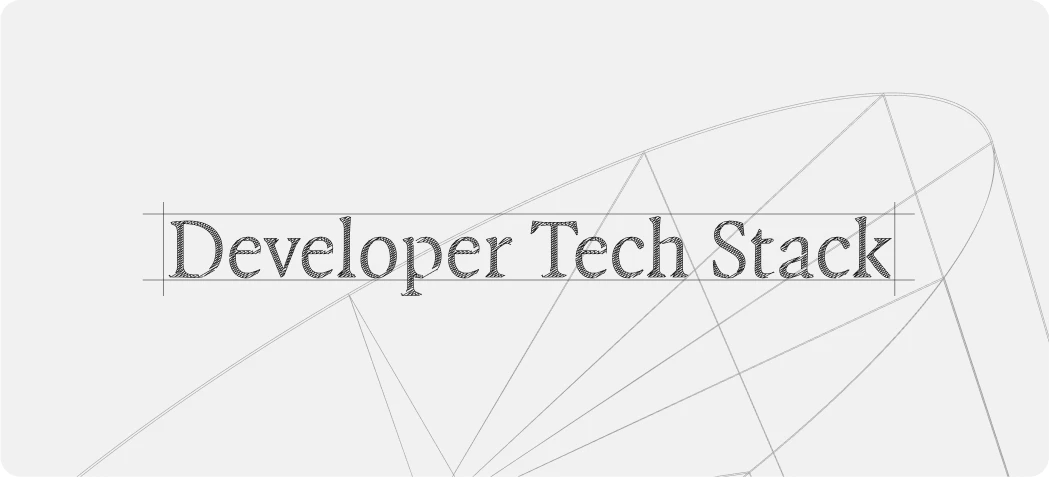
Ryan Daws is a senior editor at TechForge Media with over a decade of experience in crafting compelling narratives and making complex topics accessible. His articles and interviews with industry leaders have earned him recognition as a key influencer by organisations like Onalytica. Under his leadership, publications have been praised by analyst firms such as Forrester for their excellence and performance. Connect with him on X (@gadget_ry), Bluesky (@gadgetry.bsky.social), and/or Mastodon (@gadgetry@techhub.social)
Timescale has released its latest report showcasing PostgreSQL’s ascension as the database of choice for AI and real-time app development.
The annual survey – which collated insights from 688 developers worldwide – illustrates PostgreSQL’s continued dominance as a versatile, developer-friendly platform.
Key findings include:
- PostgreSQL is AI developers’ database of choice: 78.6% of respondents favour PostgreSQL for its flexibility in managing a wide array of data types, including vectors, which are integral to AI workflows.
- Growing usage: 65% of developers reported increased adoption of PostgreSQL compared to the previous year, representing a 14-point surge from 2023.
- Accelerating AI adoption: Over half (55.3%) of PostgreSQL developers now use AI tools in their workflows—a 55% year-over-year spike.
- Dual-purpose usage: 60% of developers are applying PostgreSQL to both personal and professional projects, marking a 20% leap from last year.
Ajay Kulkarni, CEO of Timescale, said “This year’s report highlights why the tried and tested PostgreSQL platform continues to be a hugely popular choice for developers, especially when it comes to modern demands like AI applications.
“PostgreSQL’s reliability and extensions continue to make it the go-to database for innovation.”
PostgreSQL and AI: A perfect match
One of PostgreSQL’s standout strengths is its extensibility and familiar SQL interface, which together make it a compelling choice for AI-focused developers.
Unlike specialised databases such as Pinecone, MongoDB, and ElasticSearch, PostgreSQL integrates advanced features – such as vector storage – while leveraging its trusted SQL framework. This integration allows developers to build AI-driven applications without the friction of managing proprietary or specialised systems.
The report underlines the growing demand for databases that can seamlessly handle different types of data, particularly as AI use soars.
When surveyed about their preference for PostgreSQL, developers pointed to its flexibility with integrating diverse data types (cited by 78.6%) and its ease of use (56%) as the primary reasons.
From weekend projects to enterprise AI
PostgreSQL’s reputation as a developer favourite is grounded in its dual ability to cater to personal experimentation and enterprise-scale projects.
The survey found that 60% of respondents use PostgreSQL for both personal and professional endeavours, marking a 20% year-on-year increase. This trend underscores how developer adoption often begins with small, hackathon-style projects built using PostgreSQL’s familiar and accessible SQL interface.
Many of these developers, once comfortable with the platform, then champion PostgreSQL’s implementation in their professional environments.
PostgreSQL proves particularly valuable in professional settings due to its ability to handle demanding workloads like vector search, AI-driven applications, and real-time analytics. Its scalable and versatile architecture ensures a smooth transition for developers from initial experimentation to high-impact enterprise deployments.
Expanding PostgreSQL’s use cases
Continued innovation and extensibility have driven PostgreSQL’s adoption into an ever-growing number of industries. Today, its robust scalability and built-in support for modern workloads are powering a range of cutting-edge use cases, from IoT to financial technology and healthcare platforms.
PostgreSQL is especially prized for its capacity to manage both transactional and analytical workloads harmoniously. This versatility suits enterprises requiring mission-critical solutions that balance data reliability with advanced functionality. Examples include leveraging PostgreSQL for real-time financial reporting, managing geospatial data for analytics, or supporting IoT applications with continuous data streams from connected devices.
For AI-focused industries, PostgreSQL ensures scalability while integrating smoothly into modern data pipelines. Its additional support for complex data models, real-time reporting, and extensibility has allowed it to carve a niche as a leading solution for organisations looking to innovate without compromising on reliability.
This annual survey affirmatively illustrates PostgreSQL’s ability to enable experimentation while supporting modern workloads at scale, ensuring that it remains the database of choice for both amateur tinkerers and enterprise developers alike.
(Photo by Vladislav Babienko)
See also: PostgreSQL 17 delivers a leap forward for open-source databases

Want to learn more about AI and big data from industry leaders? Check out AI & Big Data Expo taking place in Amsterdam, California, and London. The comprehensive event is co-located with other leading events including Intelligent Automation Conference, BlockX, Digital Transformation Week, and Cyber Security & Cloud Expo.
Explore other upcoming enterprise technology events and webinars powered by TechForge here.
Tags: AI, artificial intelligence, coding, databases, development, postgresql, programming, report, research, study
.png)
 3 days ago
2
3 days ago
2
 (2).png)


/cdn.vox-cdn.com/uploads/chorus_asset/file/25515570/minesweeper_netflix_screenshot.jpg)




 English (US) ·
English (US) ·